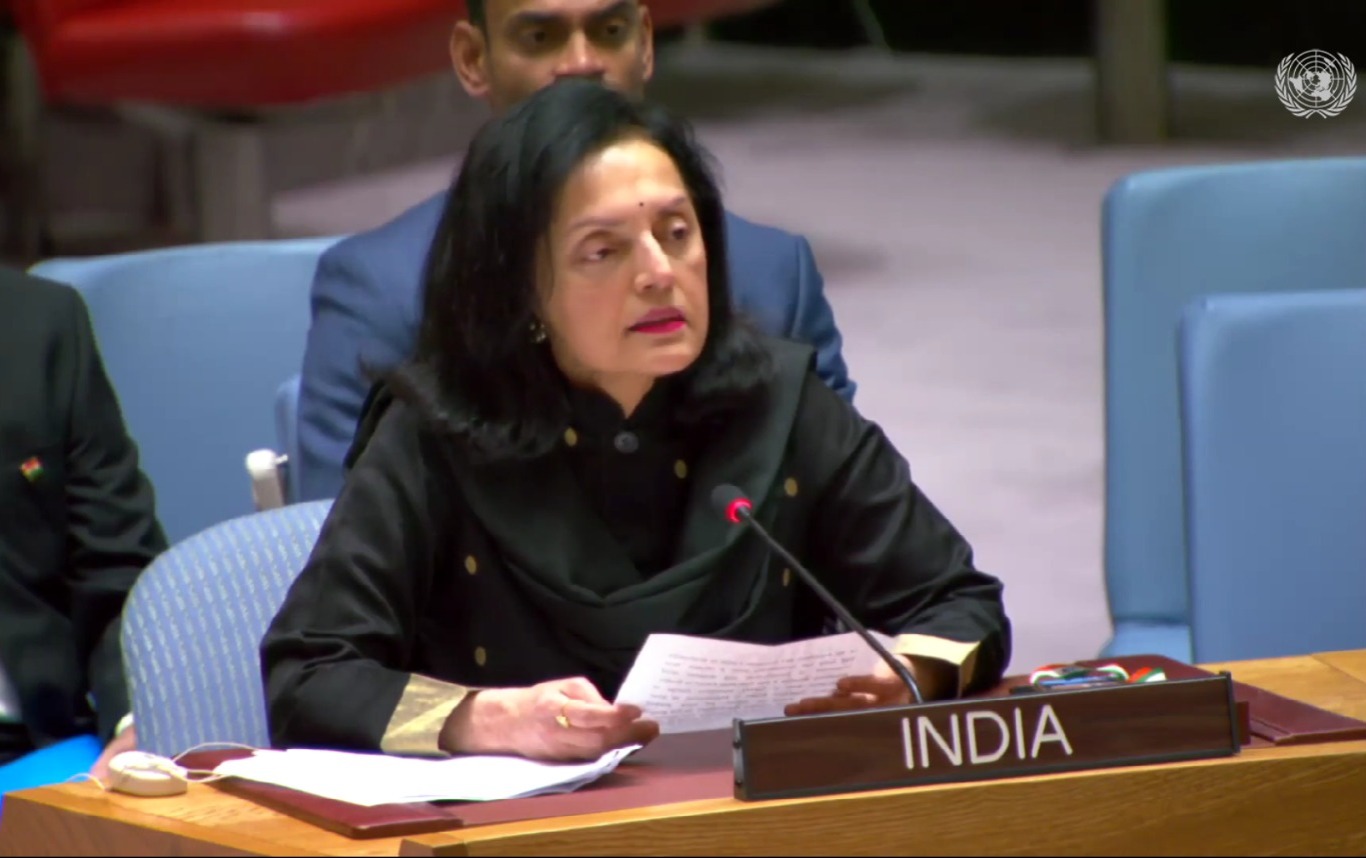Maintaining international peace and security is paramount with the current geopolitical crisis the world is facing. The food, fuel, and fertiliser crises demand global attention and cooperation.
In an effort to identify and advance public-private partnership solutions to promote international peace and security, the UNSC organised an open debate on “Maintenance of International Peace and Security: Advancing Public-Private Humanitarian Partnership” on September 14.
India’s Permanent Representative to the UN, Ambassador Ruchira Kamboj, at the open debate, emphasised the urgent need for robust public-private humanitarian partnerships to address the complex challenges threatening global peace and security.
“Traditional diplomatic and military approaches alone are no longer adequate to address the complex challenges that threaten global stability today,” said the Ambassador. She further added, “To tackle these challenges effectively, there is a growing necessity to foster stronger public-private humanitarian partnerships.”
Public-private humanitarian partnerships (PPHPs) hold immense potential, but there are also various challenges associated with them. Ambassador Kamboj pointed out that for the private sector, a potential challenge may be an inherent conflict of interest driven by profit motives, which could inadvertently prioritise economic gain over genuine security concerns, leading to ethical dilemmas.
Additionally, ensuring accountability and transparency within the PPPs is also a major challenge. It is essential to strike the right balance between interests, maintain ethical standards, and ensure accountability as prerequisites for the effectiveness of these partnerships.
India’s Exemplary Approach
India has emerged as a proponent of PPHPs, particularly in humanitarian and disaster relief operations. For instance, Cyclone Fani, regarded as one of the most severe storms to hit the Indian subcontinent in 2019, witnessed the government disaster management authority partnering with local businesses, including telecommunications companies, logistics providers, and food suppliers, to mitigate the impact of the cyclone and protect hundreds of lives and properties.
In an increasingly interconnected world, the responsibility of maintaining international peace and security is a shared one. By harnessing the collective strengths of governments, NGOs, civil society, and the private sector, we can build a safer, more interconnected world that is better equipped to address the challenges of our time.










